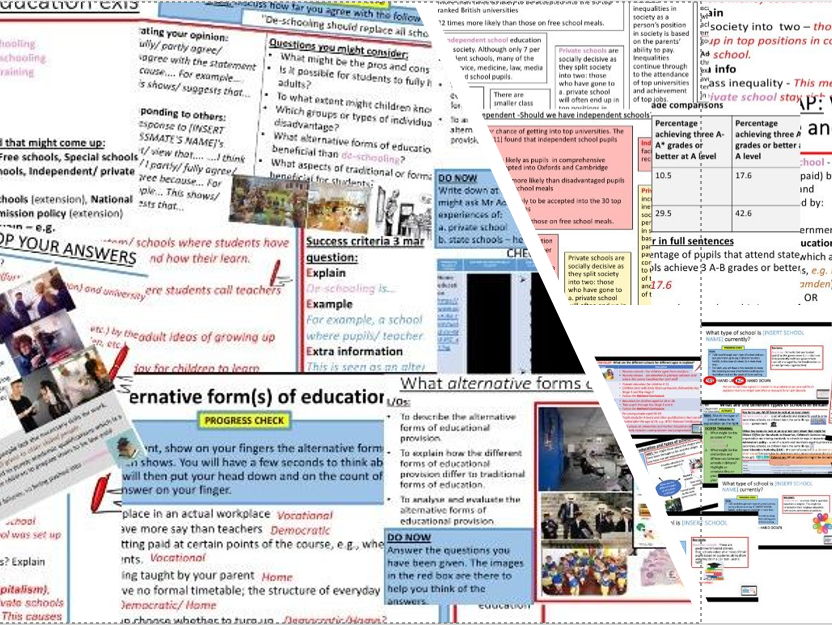*L1 Different types of education and schools
Detailed student led lesson on the different stages of education, the different types of schools and the state vs independent divide in education (including arguments for and against private schools). Lesson has been planned to stretch and challenge the most able and includes scaffolding to support all pupils with meeting the lesson objectives.
This lesson also goes through the different types of schools for different ages: Nursery, Primary, Secondary, Sixth form and Higher education.
PLEASE NOTE - Progress check activity requires students to think about the types of schools that apply to their school so you will need to edit it to make it relevant.
covers the following key terms: Nursery school and classes, Primary Schools, Secondary schools, Sixth form, Higher education, State schools, Academies, Free schools, Special schools, Faith schools, Grammar schools, Independent/ private schools, Specialist schools, National curriculum, Public schools (extension), Local Education Authorities (LEAs) (extension), Admission policy (extension), Ofsted (extension)
Answers included for main activities (excluding the plenary)
Includes a 3 marker with a success criteria and student-friendly mark-scheme.
Resources can be found at the end of the PPT
L2 State vs independent education and schools
Detailed lesson with lots of scaffolding based on adaptive teaching that help students understand independent schools vs state schools.
Cover the following key terms: Independent schools, Private schools, National curriculum, State-funded school
Covers the following sociologists: The Sutton trust (2011)
ANSWERS TO MOST ACTIVITIES INCLUDED
Key terms you SHOULD know that link: State schools, Independent/ private schools, national curriculum, Public school (extension), Admission policy (extension), Marxism.
L3 Alternative forms of education and schooling
Detailed lesson with lots of scaffolding based on adaptive teaching that help students understand alternative forms of traditional education (e.g. describe the alternative forms of educational provision, explain how the different forms of educational provision differ to traditional forms of education, analyse and evaluate the alternative forms of educational provision.
Covers the following key terms: Home education/ home-schooling, Democratic education/ de-schooling, Vocational education and training
Key sociologists mentioned that students should already be aware of: Illich (extension)
Answers to all main activities included
Resources can be found at the end of the PPT
Something went wrong, please try again later.
This resource hasn't been reviewed yet
To ensure quality for our reviews, only customers who have purchased this resource can review it
to let us know if it violates our terms and conditions.
Our customer service team will review your report and will be in touch.



